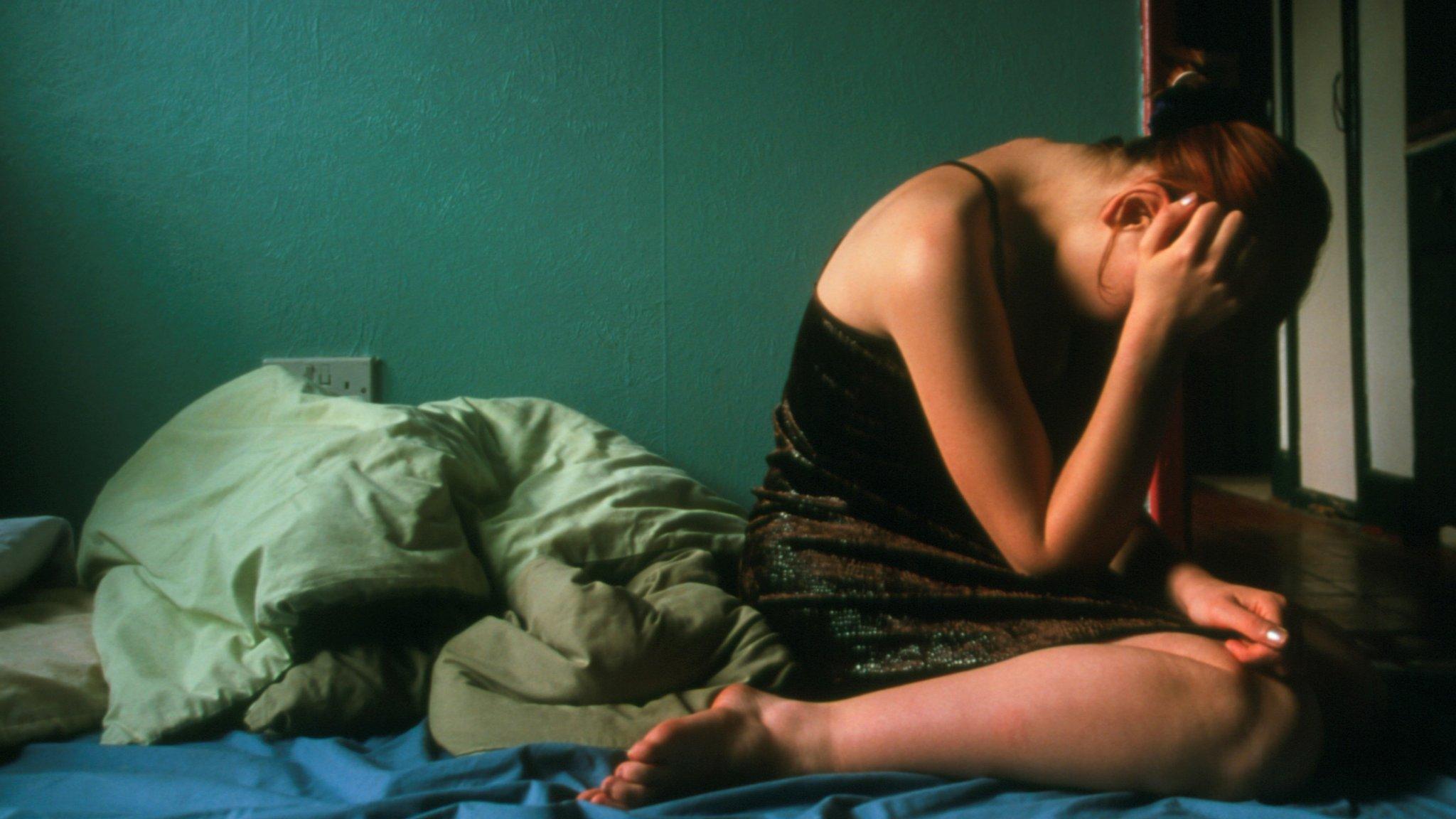Modern slavery: England and Wales police investigating 'too few' cases
- Published
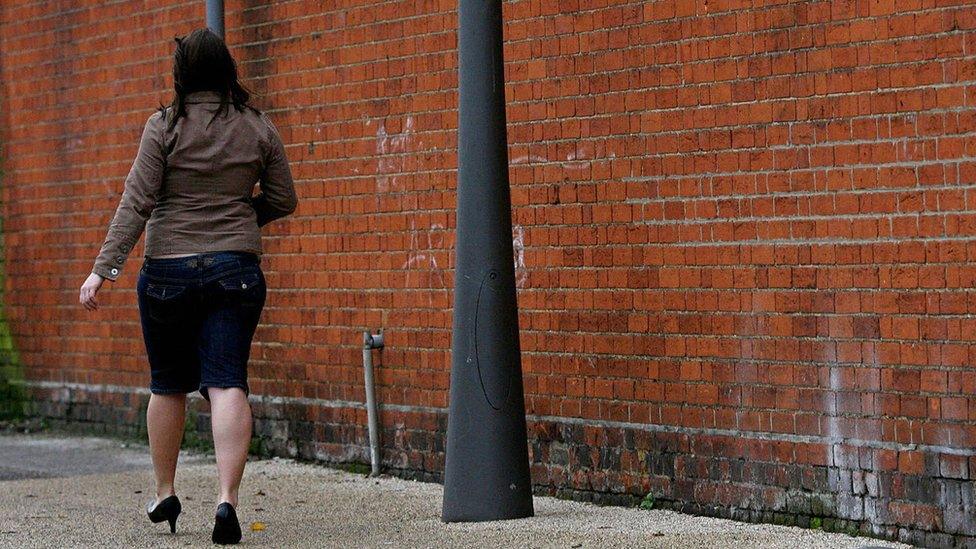
Many of the women trafficked work in prostitution
Police are failing to investigate alleged cases of modern slavery due to "chronic weaknesses" in crime recording, the UK's anti-slavery commissioner says.
In his first annual report, external, Kevin Hyland said police in England and Wales had received 3,146 allegations, but recorded just 884 crimes.
He said there were "too many gaps" for victims to fall through.
The National Police Chiefs' Council said the crime had "unique challenges".
The report comes as Prime Minister Theresa May calls for the UK to lead the global fight against human trafficking, promising it will "work tirelessly" to combat modern slavery.
Mr Hyland, who was appointed by Ms May last year, said there would need a "first-class response across the UK" for the UK to achieve this ambition.
His analysis indicated that, at best, 28% of referrals in England and Wales were recorded as crimes last year.
'Gold standard'
When the referrals are not recorded as crimes, investigations are not launched and victims do not receive the justice and support they need and deserve, Mr Hyland warned.
Police Scotland fared little better - of the 154 potential victims identified through the National Referral Mechanism, only 13 crimes were recorded.
But in Northern Ireland 100% of referrals were recorded under a human trafficking and exploitation offence.
Mr Hyland said this showed it was possible to record modern slavery crime accurately.
The report said: "Inadequacies in this area impact not only present and future victims, but could also allow organised crime groups to act with impunity, compromising the UK's national security."
The National Police Chiefs' Council said modern slavery was a "complex and cross-border type offence" but that officers could do more.
Its spokesman said: "It does not excuse the gap between national referrals and recorded crime in some areas. We also believe there are many victims of modern slavery who are yet to be identified."
The Home Office estimates there are between 10,000 and 13,000 potential victims of human trafficking in Britain, with 45 million worldwide.

'I was trafficked from Romania'
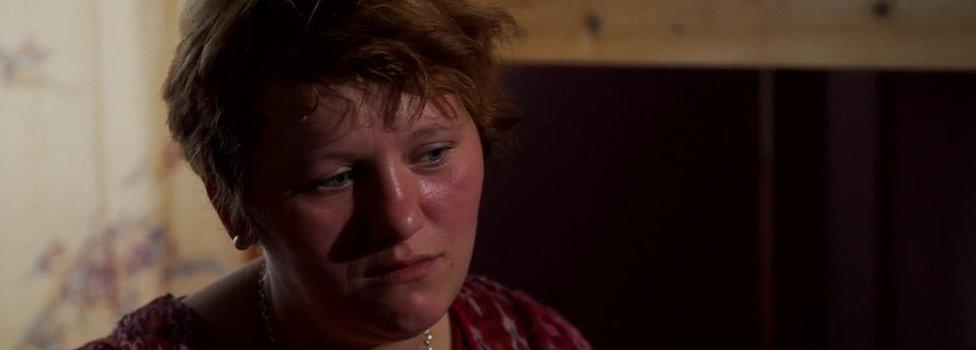
Mihaela, 26, was trafficked three times across Europe from Romania
Mihaela was trafficked three times across Europe from Romania to work in the sex trade against her will.
"In the mornings and afternoons I'd have 15 clients," she says.
"In the evenings, through to the next morning, they'd bring another 20 to me."
The 26-year-old says she was trafficked out of Romania to Hungary, Austria and Switzerland with a gun to her head - the first time when she was aged just 16.
"I had a lover and he was part of the mafia traffickers," she says.

As home secretary, Mrs May was responsible for passing the UK's Modern Slavery Act last year - the first of its kind in Europe.
Speaking at a service in Westminster in honour of 18th-Century anti-slavery campaigner William Wilberforce later, Mrs May will say: "Our challenge is to ensure that the fight against slavery carries on - to free people from the bonds of servitude, to free those in mental chains, and to free people from the clutches of slave-drivers and traffickers.
She will promise £33m from the aid budget to focus on high-risk countries, from which victims are regularly trafficked to the UK - these include Nigeria, Vietnam, Romania, Poland and Albania.

Who was William Wilberforce?
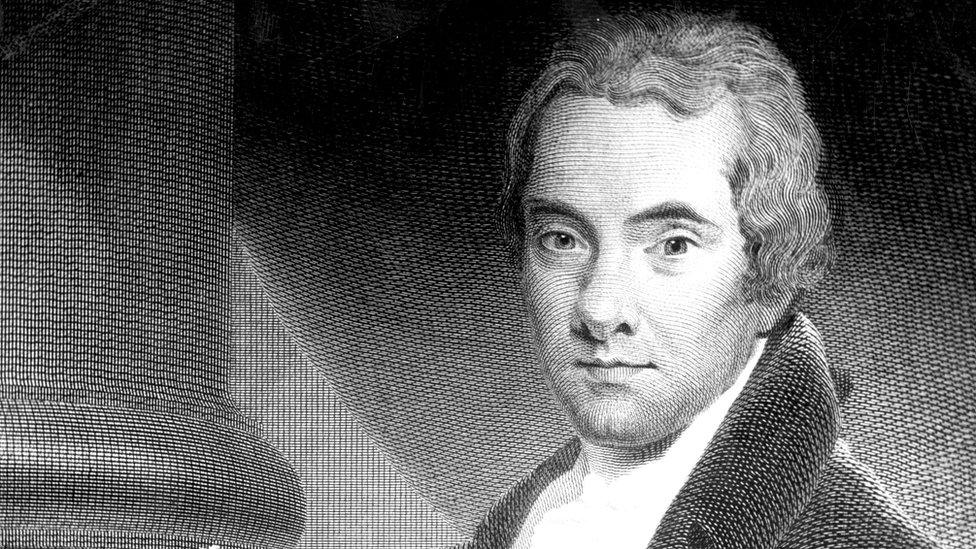
Born on 24 August in 1759 in Hull
Became MP for Hull in 1780, later representing Yorkshire
Developed an interest in social reform, particularly the improvement of factory conditions in the UK, after becoming an evangelical Christian
Consistently lobbied for the abolition of the slave trade after being heavily influenced by the abolitionist Thomas Clarkson
Died on 29 July 1833, shortly after the act to free slaves in the British empire passed through the House of Commons

The Modern Slavery Act 2015, external says an offence is committed if someone holds another in slavery or servitude or requires them to perform forced or compulsory labour.
The legislation increased the maximum jail term for people traffickers from 14 years to life, and gave courts in England and Wales powers to impose orders to restrict the activities of suspected traffickers.
It was aimed at consolidating offences used to prosecute those who enslaved others into a single act.
- Published31 July 2016
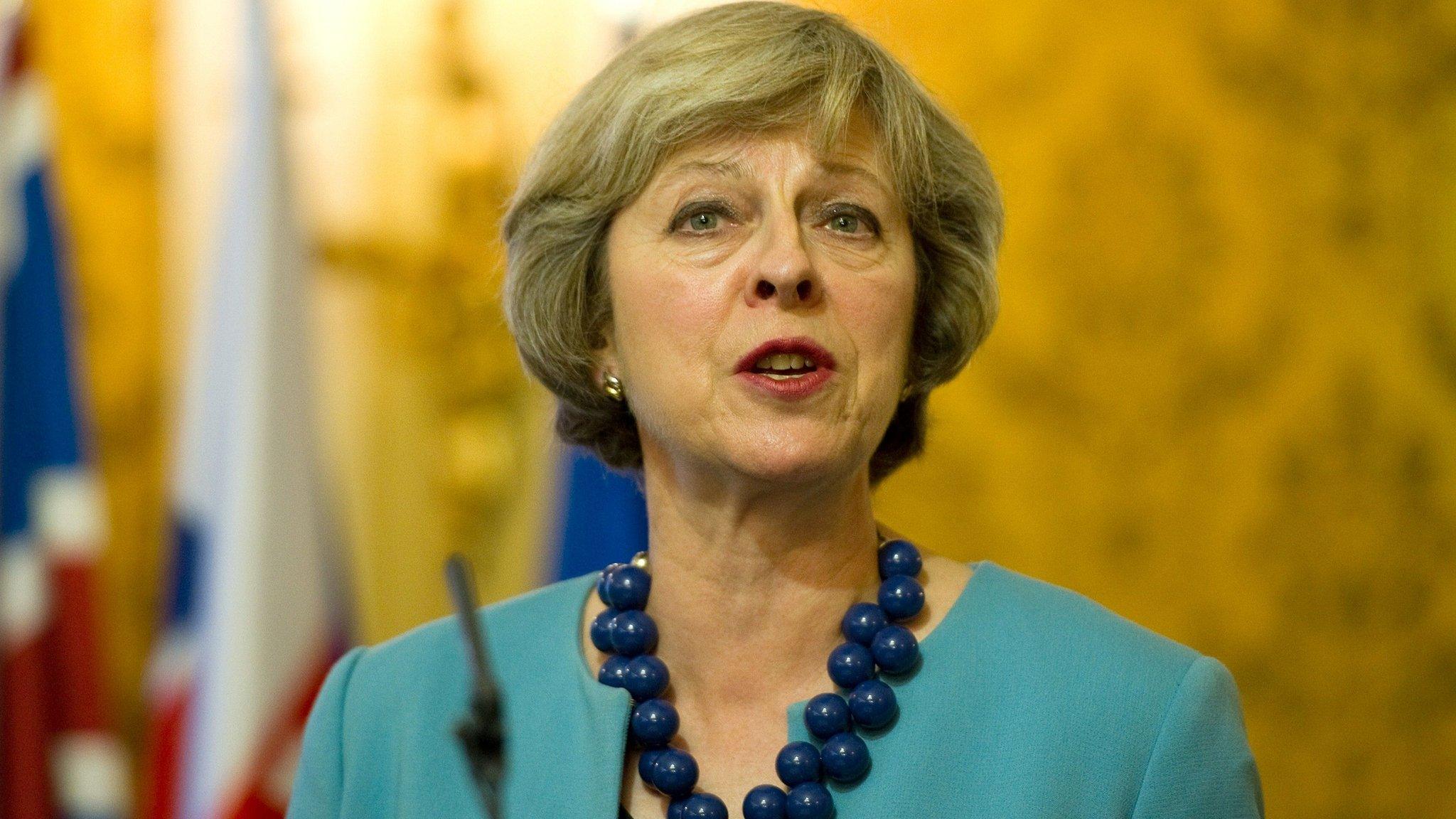
- Published12 October 2016
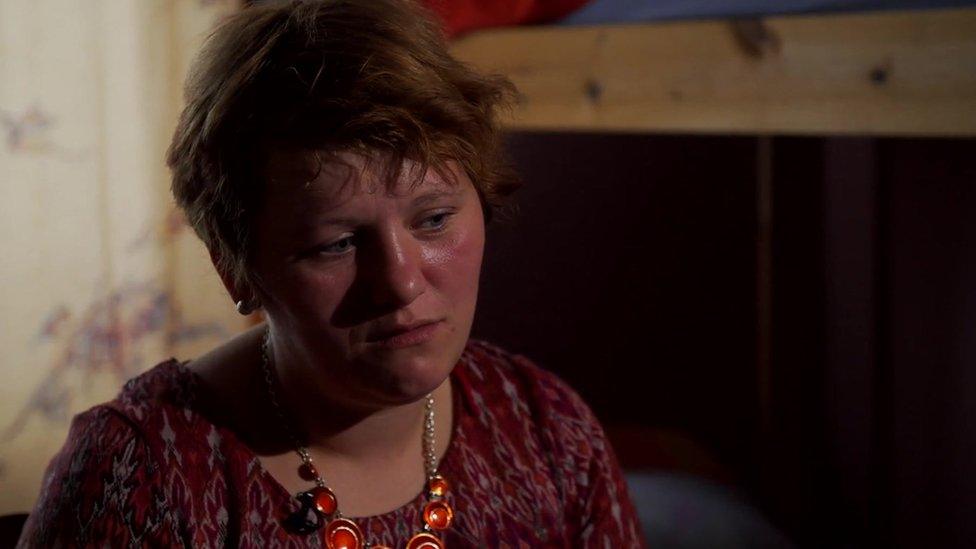
- Published31 May 2016
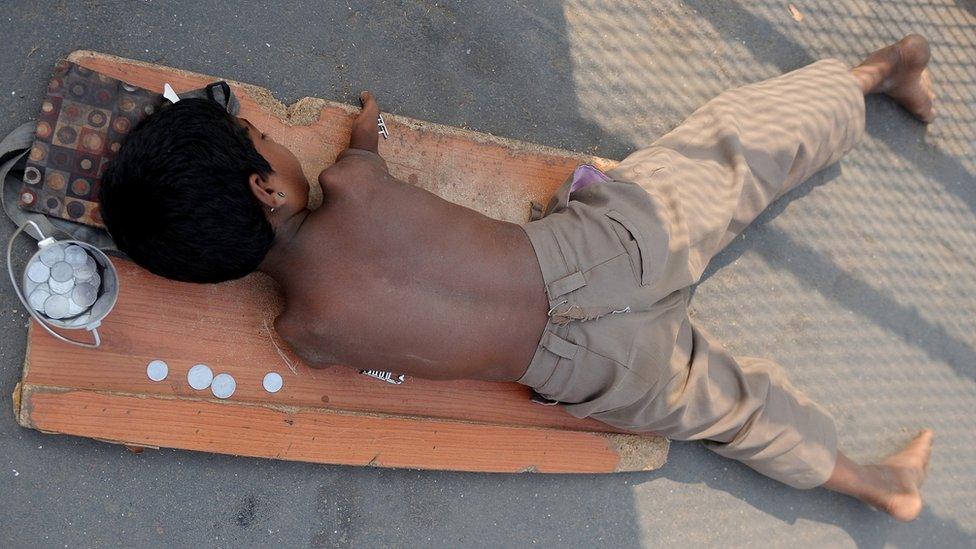
- Published30 March 2016

- Published16 October 2015
